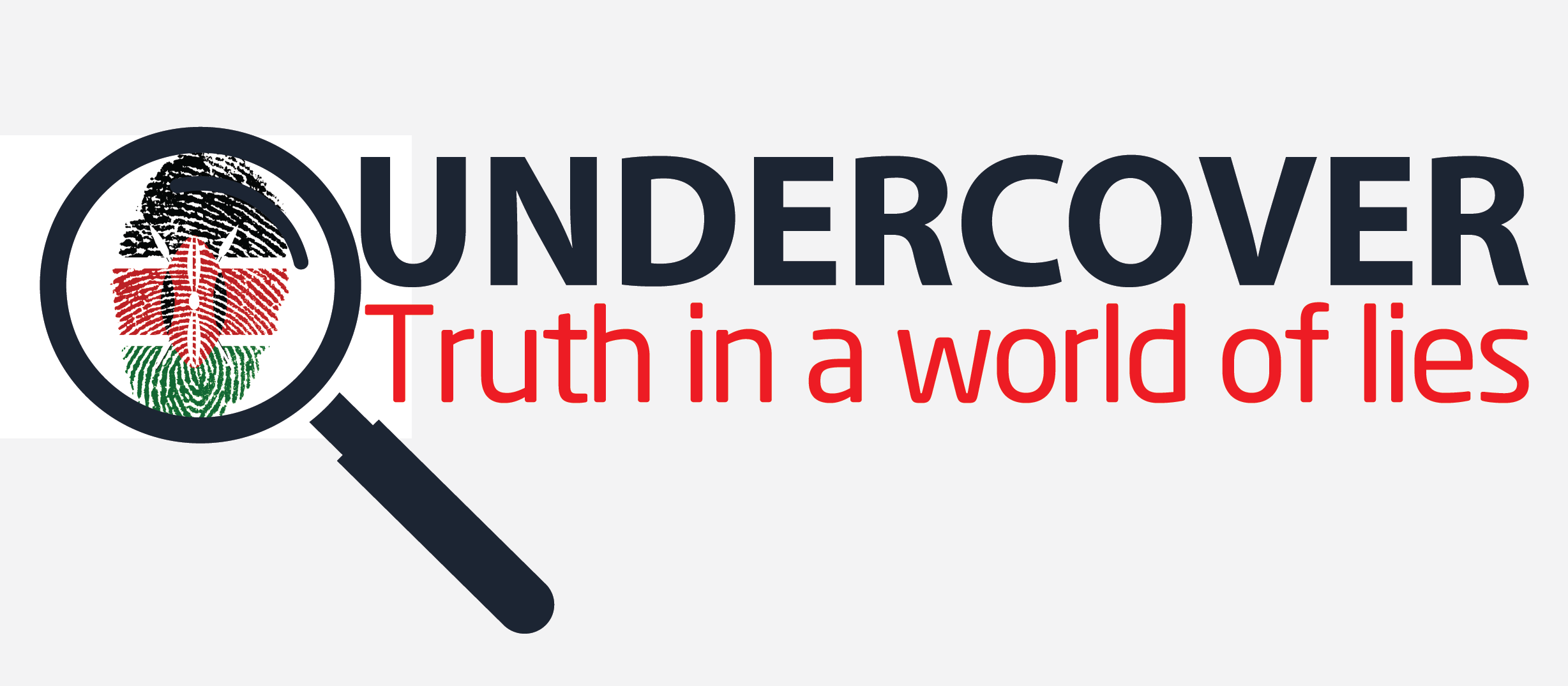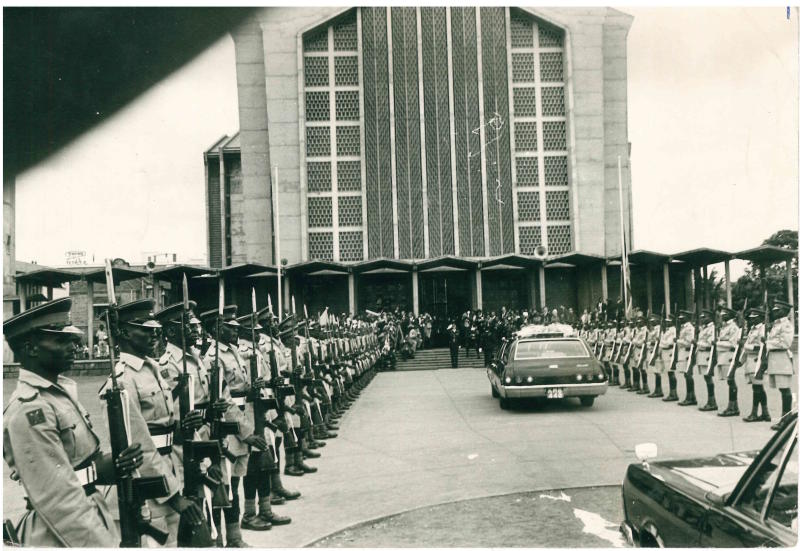Only three people in Kenya knew of assassin Nahashon Njenga’s execution
By GW Ngari
Editor-at-Large
Tom Mboya, the nationalist politician, was assassinated this week and later buried in an emotional ceremony on July 14, 1969. Nahashon Isaac Njenga Njoroge was found guilty of shooting Mboya’s 39 year old body, after a trial that left more questions than answers. He was hanged five months later.
But why did Attorney General, the late Charles Njonjo-Mboya’s Best Man during his wedding seven years earlier- personally call the expatriate hangman to execute Njenga at Kamiti Maximum Security Prison?
Njenga, a Kanu Youth Winger with military training in Bulgaria, was found in possession of the Smith&Wesson revolver used in Mboya’s assassination along Government Road (now Moi Avenue) that July 5, 1969.
British High Commissioner Sir Eric Norris alleged Attorney General Charles Njonjo had “more than probably had a hand in the death of Mboya”
When he was apprehended, Njenga, a full-time second-hand car sales man, but a part time hired hand for Kenya’s intelligence service retorted to police superintendent, the late Sokhi Singh: “Why pick me, why not ask the Big Man?” The Big Man was obviously foungind President, Mzee Jomo Kenyatta.
That question was never investigated despite Njenga making claims during the trial that he was with the body guards of President Jomo Kenyatta at his home in Gatundu, Kiambu County that morning before murder was used a tool of political management on Mboya.
It also later emerged that Mboya, Minister for Economic Planning, was accused of disrespecting President Kenyatta besides sourcing foreign funds to overthrow the government during a Cabinet meeting in days leading to his assassination.
Members of Kenyatta’s Kitchen Cabinet also had wind of the planned assassination: Minister of State Mbiyu Koinage, Kenyatta’s friend and brother in-law and Dr Njoroge Mungai, Kenyatta’s personal physician who had presidential ambitions. Then there was Njonjo whom British High Commissioner Sir Eric Norris alleged four years later had “more than probably had a hand in the death of Mboya” as British historian Daniel Branch informs us in his book, Kenya: Between Hope and Despair: 1963-2011.
Sir Norris had insider information considering the investigators into the Mboya murder were British expatriate police in Kenya.
The man from Muchatha in Kiambu, left the court room smiling, but his amusement later came to grief
Kenya’s Chief Justice Kitili Mwendwa told British diplomats he had no doubt about Njenga’s imminent conviction. Justice Alfred Simpson, a Scot, sentenced Njenga to death that September after an eight day trial marked with planted witnesses including a police reservist. The trial, full of confusion and scanty information, largely relied on circumstantial evidence: No motive. Njenga admitted possessing the murder weapon, but the prosecution led by Assistant Commission of Police John Bell and State Prosecutor John Hobbs, never proved he pulled the trigger.
The man from Muchatha in Kiambu, left the court room smiling. But his amusement later came to grief. Njenga’s lawyer, the late Sam Waruhiu, was a novice without criminal law background. Njenga appealed the sentence at the East African Court of Appeal, where Waruhiu argued that his client was at worst, “an accessory to the murder” and thus only part of a wider plot. The appeal was dismissed-after just a day in court!
In private conversations, Hobbs revealed that Njenga “was acting as the agent of a conspiracy.” Njenga’s only hope to save his life lay in appealing for clemency to President Kenyatta through the Chief Justice. That appeal too, was rejected.
Curiously, and later in life, Mboya’s wife Pamela had a driver named Isaac Njenga
On the morning of November 8, 1969, Nahashon Njenga was woken up by the public hangman, a British expatriate. There were no local hangmen in Kenya then. Majority of the mzungu executioners were sourced from Zimbabwe, a British colony like Kenya. Besides favourite last meal and wishes, protocols for hanging the condemned were not observed in Njenga’s case.
“He was hanged on Njonjo’s instructions, and the execution was so sudden that even priests were not present. Njenga was taken by surprise, but kept his secrets,” notes British historian Charles Hornsby in, Kenya: A history since Independence.
There were other convicts on death row, but Njenga’s journey to his maker had to be spirited. Only Njonjo, the Commissioner of Prisons and the hangman knew of Njenga’s execution.
“The prison chaplain, who normally attended executions, was not summoned, and the prison doctor was only present because the executioner had personally contacted him,” writes Branch, adding that Njenga had kept the names of his co-conspirators in probable exchange for sparing his life but fear that he might one day open his mouth resulted in indecent, speedy, summery execution.
The police rounded up all Kikuyu in South Nyanza and took them to Kisii for their own safety
The assassination of Tom Mboya was a turning point in many ways: It sparked riots in Nairobi and Nyanza, coming hot on the heels of political harassment of Luo politicians by the Jomo Kenyatta regime.
Suspicions that Kikuyu Mafia had bloodied their hands saw the entourage of Kenyatta stoned by predominantly Luo mourners during Mboya’s Requiem Mass at the Holy Family Basilica, Nairobi. Two people were killed and scores injured after police lobbed tear gas canisters, scampering mourners into the Cathedral, weeping.
That Kikuyus stoned Mboya’s three kilometer long convoy as it snaked through Kikuyu town enroute to Rusinga Island for burial escalated the ethnic tensions between the Luo and the Kikuyu. “The police rounded up all Kikuyu in South Nyanza and took them to Kisii for their own safety,” notes Hornsby. JM Kariuki, the populist MP for Nyandarua North, was the only Kikuyu and MP who attended the funeral.
Without Mboya, a President in waiting, the Luo gave Jaramogi Oginga Odinga, the leadership mantle
Political animosity only fueled the divergent linguistic and cultural differences between the two communities, lasting to this day. Mboya’s murder also weakened the intellectual foundation of our politics besides reinforcing Kikuyu dominance with ramification of Succession Politics being felt now.
Had Mboya lived, Kenya would have turned out differently. His biographer, David Goldsworthy noted “Mboya represented an alternative future for Kenya that was written out of history with alacrity by the survivors.”
Without Mboya, a President in waiting, the Luo gave Jaramogi Oginga Odinga, the leadership mantle, but the consequences of Luo belligerence was exclusion from government and on to Opposition politics. The torch has since passed to son Raila Odinga-now with his two Bondo feet firmly in Jubilee government of President Uhuru Kenyatta, and with it, hopes of inclusion, flames of freedom.
Curiously, and later in life, Mboya’s wife Pamela had a driver. His name: Isaac Njenga!


Good read
It seems to me that Charles Njonjo was a chief actor, if not the chief architect of the Tom Mboya assassination. He had too much to cover up, hence the hasty “execution” of Isaac Njenga.
That Pamela would accept a person with the very name which would naturally traumatise her leaves a lot of questions too. Was Njenga really executed, or was the denial of last meal and last wishes, which would bring in more witnesses to the “execution”, a way of covering up the absence of the said execution?
Kenya mourns on the non-tribal Mboya.
r.i.p Mboya